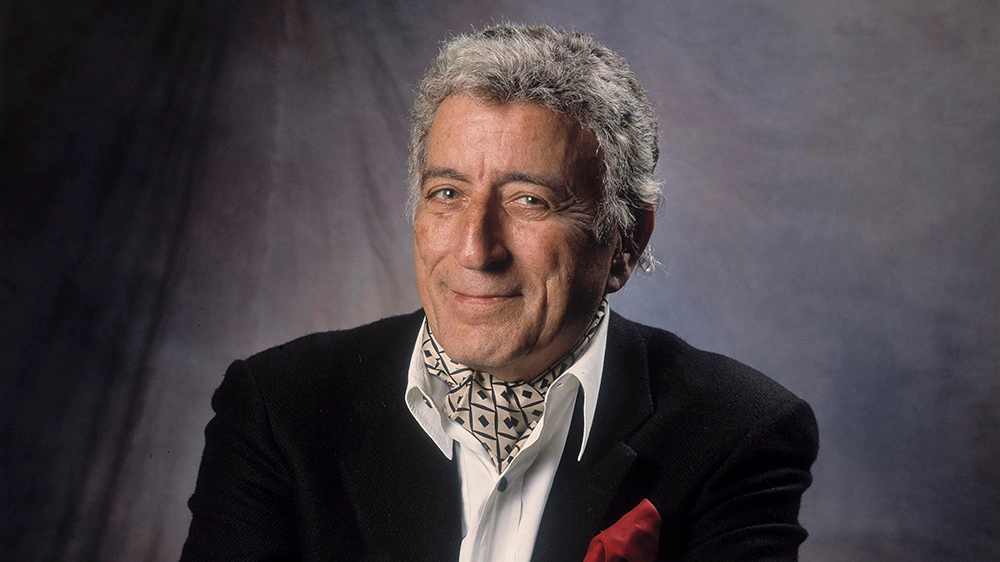Tony Bennett, the master pop vocalist who had a professional career spanning eight decades with a No. 1 album at age 85, died on Friday morning in New York City. He was 96.
Bennett was diagnosed with Alzheimer’s disease in 2016, but had continued to perform and record through 2021.
His peer Frank Sinatra called him the greatest popular singer in the world. His recordings – most of them made for Columbia Records, which signed him in 1950 – were characterized by ebullience, immense warmth, vocal clarity and emotional openness. A gifted and technically accomplished interpreter of the Great American Songbook, he may be best known for his signature 1962 hit “I Left My Heart in San Francisco.”
He was equally at home in front of intimate combos (which often featured his pianist and longtime musical director Ralph Sharon) and lushly arranged orchestras. Though never strictly a jazz singer, he flourished in jazz settings, and cut memorable sessions with Count Basie’s big band and the lyrical pianist Bill Evans.
Active as a recording artist from 1949, and one of the top pop performers in the ‘50s and early ‘60s, Bennett saw his career surge anew in the ‘90s and again in the new millennium, under the management of his son Danny.
In later years, he memorably dueted on the standard “Body and Soul” with Amy Winehouse, and released a full-length duet album with Diana Krall and a pair of recordings with Lady Gaga. Even after the revelation in early 2021 that he had been diagnosed with Alzheimer’s, he remained active.

His last public appearance came with Gaga at Radio City Music Hall in August 2021, two months before his last release, the Bennett-Gaga set “Love for Sale,” the sequel to their chart-topping 2014 collaboration “Cheek to Cheek.”
After gaining a young new audience with smartly booked TV appearances, his “MTV Unplugged” album of 1994 — released when Bennett was 67 — won a Grammy as album of the year. A pair of “Duets” albums in 2006 and 2011 enlisted new fans; the latter release reached the apex of the U.S. chart.

Pondering Bennett’s unprecedented artistic longevity and enduring popularity in “A Biographical Guide to the Great Jazz and Pop Singers,” critic Will Friedwald wrote, “The idea that someone who sang the great show tunes of the Eisenhower era and earlier could compete with heavy metal and rap would have previously seemed fodder for one of those rapidly aging comics who opened for Sinatra.”
Winner of 18 Grammy Awards (with 36 total nominations), and a Recording Academy Lifetime Achievement Award recipient in 2001, Bennett also garnered two Emmy Awards. He was a Kennedy Center Honoree in 2005 and a National Endowment for the Arts Jazz Master in 2006.
The source of Bennett’s generation-hopping appeal may be best summed up in an observation about his singing by composer and critic Alec Wilder: “There is a quality about it that lets you in.”
He was born Anthony Dominick Benedetto in Astoria, Queens, New York on Aug. 3, 1926, to Italian immigrant parents; his father was a grocer, his mother a seamstress. Raised in poverty, he began singing as a child, and studied music and his other lifelong love, painting, at New York’s High School of Industrial Art. His vocal influences included Al Jolson, Bing Crosby and, later, Frank Sinatra, as well as such female singers as Billie Holiday and Judy Garland.
Drafted at 18 in 1944, he served in World War II’s European theater, doing combat infantry duty and liberating a German concentration camp. After the end of the conflict, he sang as a member of an Armed Forces band.
TYT Newsroom



